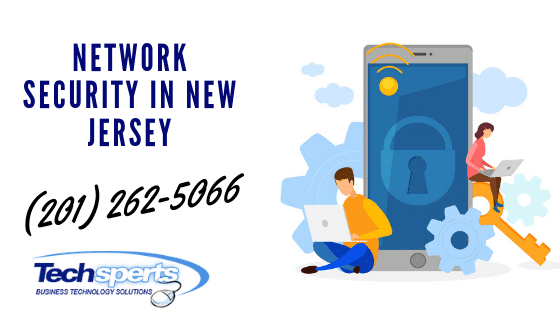
Network Security Essentials for Small Business
Network Security Tips for Small Business
As technology becomes increasingly vital for small businesses, network security is essential. Learn how to protect your data and reduce your risk of cyberattacks.

With big-name breaches like Equifax and Target still fresh in mind, you may think that big businesses are the only targets of cybercriminals. While this notion may have once held true, hackers are now shifting their focus to small business. Cybersecurity software company Symantec reported that 43 percent of all cyberattacks in 2016 were aimed at small businesses, more than twice the frequency of 2011. Businesses with little to no network security carry the greatest risk of being targeted.
Fortunately, basic network security knowledge goes a long way. Implement these network security essentials to better safeguard your data from hackers.
1. Get Everyone in the Know
Ironically, people are at once the greatest vulnerability and greatest line of defense against a cyber attack. We forget to log out of accounts, use weak passwords, click on suspicious links, and give out sensitive information to people who are likely not what they claim to be. Your employees need to know how to protect their data at all times. Consider having a presentation, seminar, or network security training program. At the very least, your employees should know the following:
- How to identify a potential scam
- Never to open a suspicious email attachment
- Keeping their devices and software up to date
- How to safely access a network
- What to do if they are hacked
2. Get the Latest Updates
Whether it’s your operating system or a specific program, you’ll want to keep everything up to date. Many apps have an auto-update feature that automatically downloads and installs the latest version of the software. Some hackers study the vulnerabilities of a specific software version. The longer you use an outdated version, the greater your risk of getting hacked. Some updates will require you to have fairly recent hardware, so it’s a good idea to replace old devices once every few years.
3. Protect Your WiFi Network
Without proper network security protection, your WiFi network is an open door for hackers. Your first line of defense is to use a firewall and encrypt all data that travels across your network. Next, you’ll want to set a password for the router that only your employees know. Most routers allow you to hide your network, preventing outsiders from seeing it when searching for networks to join.
4. Hide Your Location with a VPN
A virtual private network (VPN) disguises your IP address when you’re online. The network routes and encrypts your data, making hackers’ lives much more difficult. Login credentials, customer data, and sensitive business documents will be much harder for an outsider to access. If your employees are working remotely, have them do so over a VPN. Always encourage VPN use when working over unprotected public networks.
Large businesses often host their own VPNs, and smaller businesses are slowly but surely joining the bandwagon. If creating your own VPN is too much of a stretch, you can use a third-party VPN provider. Just make sure to do your research and find a reliable service with good reviews.
5. Implement Two-Factor Authentication
Two-factor authentication (2FA) adds another layer of protection to the traditional username-and-password login process. Without 2FA, hackers only need these two pieces of information to break into an account and wreak havoc. 2FA requires an additional form of identity verification such as a PIN, physical token, fingerprint, or retinal scan. Implementing 2FA will go a long way in protecting your data, especially often overlooked cloud databases.
Investing in network security can save your business time, money, and headaches. While there’s no foolproof way to defend against a cyberattack, taking these precautions can place the odds in your favor.


